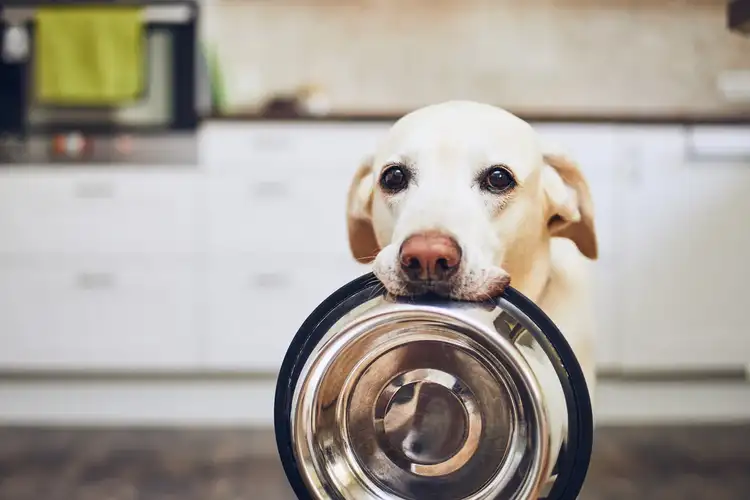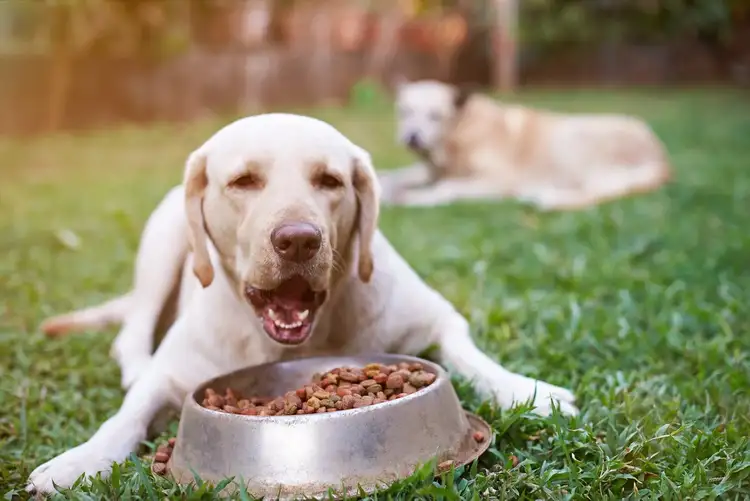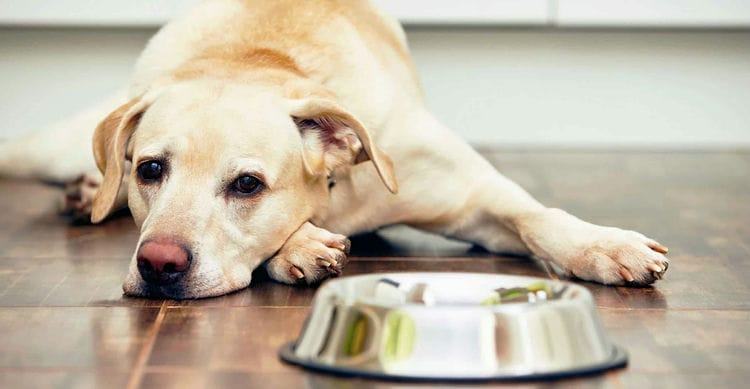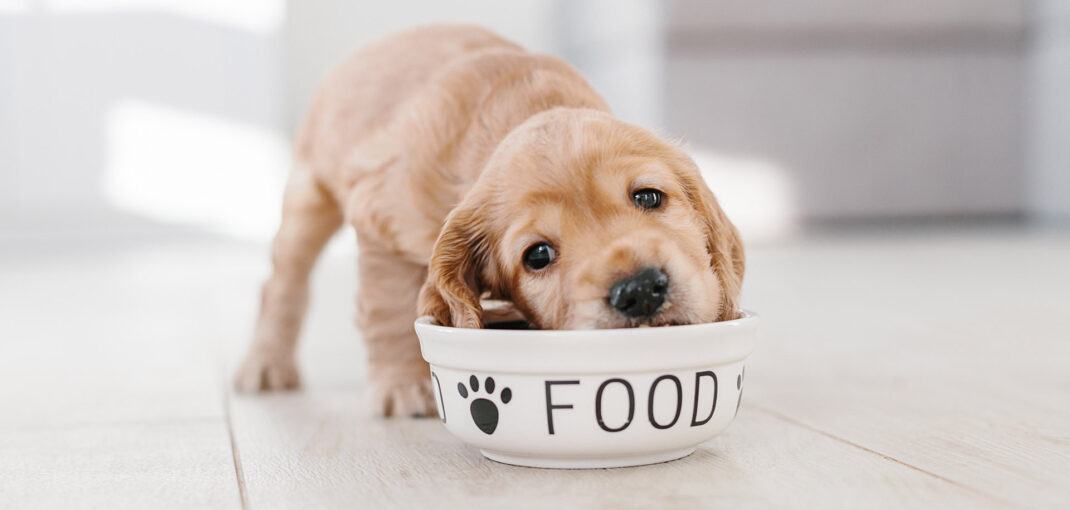When it comes to caring for your Labrador Retriever, one of the most important aspects is ensuring they receive the right amount of food. In this article, we’ll explore “How Much Should I Feed My Labrador Retriever” Find out the answer in the article below with Alibay Store.
How Much Should I Feed My Labrador Retriever?
Labrador Retrievers are medium to large breed dogs, typically weighing between 55 to 80 pounds. Their dietary requirements can vary significantly depending on their life stage, as each phase of development brings unique nutritional needs that must be met to ensure optimal health and well-being.
Puppies (8 weeks to 6 months):
During this critical growth phase, puppies require a higher calorie intake to support their rapid development. It’s essential to feed them about 3 to 4 meals a day with high-quality puppy food that is specially formulated to provide the necessary nutrients. On average, this amounts to approximately 1.5 to 2 cups of food daily, but it’s important to monitor their weight and adjust portions as needed. Feeding them in smaller, frequent meals helps with digestion and energy levels throughout the day.

Adolescents (6 months to 1 year):
As Labradors transition into their adolescent phase, you can gradually reduce the number of meals to 2 per day. This period is marked by significant growth and increased energy levels, so the total amount of food should be around 2 to 3 cups of high-quality adult dog food. It’s crucial to choose a food that supports their developing muscles and overall health, while also managing their enthusiasm for eating to prevent overeating.
Adults (1 year and older):
Once your Labrador reaches adulthood, they should be fed 2 meals a day to maintain energy levels and prevent obesity. The quantity can range from 2 to 4 cups, depending on their weight, activity level, and metabolism. Active Labradors, especially those engaged in regular exercise or sporting activities, will require more food to fuel their energy. It’s vital to choose high-quality dog food that contains the right balance of proteins, fats, and carbohydrates to support their lifestyle.

Seniors (7 years and older):
As Labradors enter their senior years, their caloric needs often decrease, making it important to adjust their food intake accordingly. Consider reducing their daily portions to about 1.5 to 2 cups a day. Senior-specific dog food is recommended, as it’s formulated to meet the unique nutritional requirements of older dogs, supporting joint health, digestion, and overall vitality. Regular vet check-ups are essential during this stage to monitor any health changes and adjust their diet as necessary.
Factors to Consider
- Weight: Regularly monitor your Labrador’s weight. If they start to gain weight, reduce their food intake and consult your veterinarian if needed.
- Activity Level: Active Labradors require more calories than those who are less active. Adjust their food portions based on how much exercise they get daily.
- Health Considerations: If your Labrador has health issues, such as obesity or allergies, it’s crucial to consult your veterinarian for a tailored feeding plan.

Choosing the Right Food
Selecting the right food for your Labrador Retriever is crucial for their overall health and well-being. Here are some detailed guidelines to help you make an informed choice:
High-Quality Ingredients:
The foundation of any good dog food is its ingredients. Always choose high-quality dog food that lists meat as the first ingredient. This ensures that the primary source of protein is derived from real meat, which is essential for muscle development and overall health. Look for specific types of meat, such as chicken, beef, lamb, or fish, rather than generic terms like “meat meal” or “animal by-products.”
Avoid Fillers:
Many commercial dog foods contain fillers like corn, soy, and wheat. These ingredients provide little nutritional value and can be harder for your dog to digest. Fillers are often used to bulk up the food at a lower cost, but they can contribute to weight gain and other health issues. Instead, opt for foods that use whole grains like brown rice or oats, which are easier to digest and provide beneficial nutrients.

Check the Label for Nutritional Balance:
Ensure the dog food provides a balanced diet with the right mix of proteins, fats, carbohydrates, vitamins, and minerals. Look for labels that state the food is “complete and balanced” according to AAFCO (Association of American Feed Control Officials) standards. This certification means the food meets the minimum nutritional requirements for dogs.
Consider Your Dog’s Specific Needs:
Different dogs have different dietary requirements based on their age, activity level, and health status. Puppies need food with higher protein and fat content to support their growth. Active and working dogs may require higher calorie intake, while senior dogs benefit from lower calorie food with added joint support. If your dog has any health conditions, such as allergies or digestive issues, look for specialized formulas designed to address these needs.
Check the Feeding Guidelines:
Always refer to the feeding guidelines on the dog food packaging. These guidelines provide a recommended portion based on your dog’s weight and age. However, these are just starting points. Monitor your dog’s weight and adjust the portions accordingly to prevent overfeeding or underfeeding. Every dog is unique, and factors like metabolism, activity level, and overall health will influence the ideal portion size.

Consult Your Veterinarian:
Before making any significant changes to your dog’s diet, it’s a good idea to consult with your veterinarian. They can provide personalized recommendations based on your dog’s specific needs and health status. Regular check-ups can also help you catch any dietary-related health issues early and adjust their food accordingly.
Feeding your Labrador Retriever the right amount of food is crucial for their health and well-being. By considering their age, weight, activity level, and specific health needs, you can ensure they receive a balanced diet. Remember, portion control and choosing high-quality food are key to preventing obesity and maintaining a happy, healthy Labrador.
While you’re ensuring your furry friend is well-fed, why not add a touch of comfort to their space? Check out the adorable Labrador Retriever Pillows at Alibay Store! Perfect for snuggling or adding style to your home, these pillows celebrate your love for Labradors. Visit us today to find the perfect pillow for your pup!






